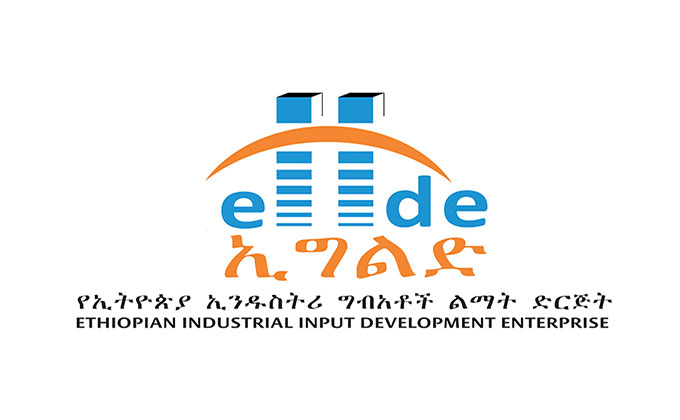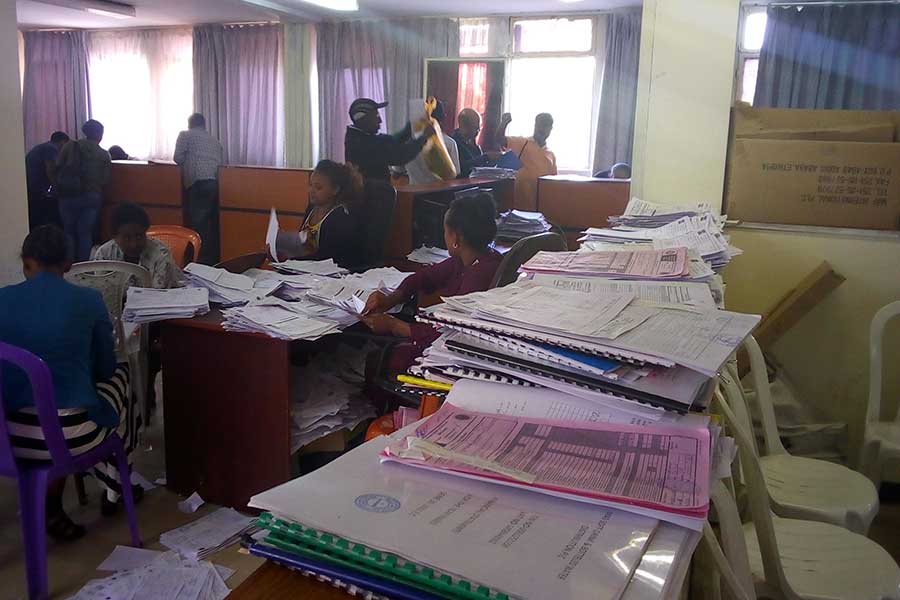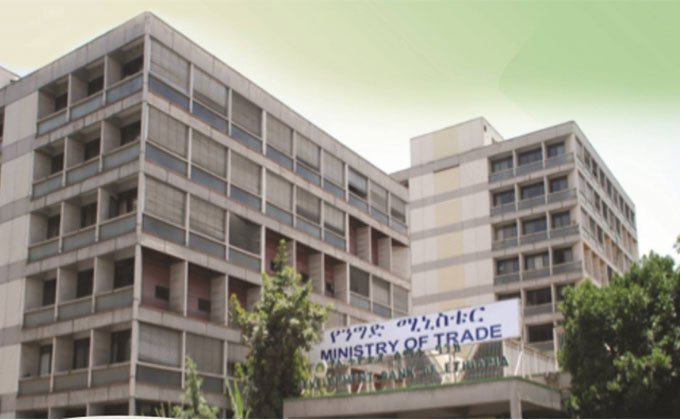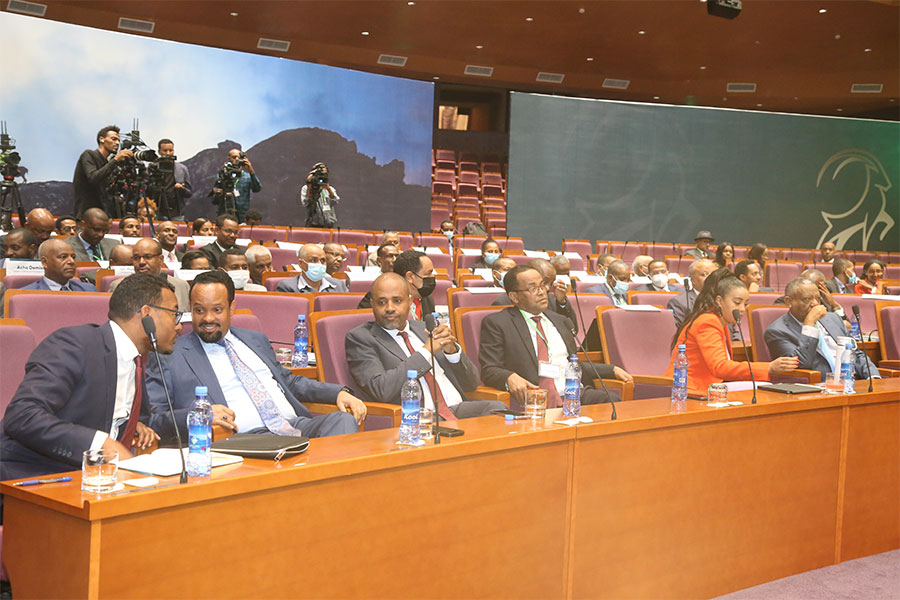
Fortune News | May 02,2020
Sep 8 , 2019
By SELAMAWIT MENGESAHA ( FORTUNE STAFF WRITER )
 The Enterprise claims it was not paid 597 million Br for the oil it has supplied to the Ministry of Trade & Industry (MoTI), over the past five years beginning 2012.
The Enterprise claims it was not paid 597 million Br for the oil it has supplied to the Ministry of Trade & Industry (MoTI), over the past five years beginning 2012. Two federal agencies find themselves in a bitter dispute, following a decision by the Ethiopian Industrial Input Development Enterprise (EIIDE) to stop supplying edible oil to the market.
The Enterprise claims it was not paid 597 million Br for the oil it has supplied to the Ministry of Trade & Industry (MoTI), over the past five years beginning 2012. It wants the Ministry of Finance to settle the receivable before it resumes the supply of 30 million litres of oil under a market stabilisation scheme run by MoTI.
"We're facing a liquidity problem," said Wondale Habtammu, CEO of the Enterprise. "We've sent a payment request and audit reports to the two ministeries."
On September 4, 2019, the Ministry of Finance formed a committee that will follow up on the case, according to Wondale.
The Enterprise also claims that the Ministry of Finance failed to inject 794 million Br in capital in the Enterprise out of its total capital of 3.9 billion Br.
"This also made us cash strapped," he said. "If we can't get this money, we'll not be able to supply raw materials."
The Enterprise was re-established in 2014 with 3.9 billion Br in capital after dissolving the former Merchandise Wholesale & Import Trade Enterprise (MEWIT), which was established in 1993 and distributed its products to wholesalers and retailers, as well as end-users.
The Enterprise operates with 1,541 employees and 85 branches across the country. It is tasked with distributing industrial raw materials to small and medium enterprises, as well as big industries. The Enterprise also aims to alleviate industrial input supply shortages, one of the major bottlenecks in the economy.
It supplies raw materials for textiles, rubber, reinforcement bars, foam mattresses, detergents, spaghetti, sugar, nails, cash registers, salt and edible oil to manufacturing and processing plants.
In the past fiscal year, the Enterprise supplied 167 million Br worth of different products for textile, leather, agro-processing and small and medium enterprises. In the reported period, it supplied 586,196ql of sugar worth 1.3 billion Br and 594 million Br worth of construction equipment. From these supplies, the Enterprise netted 67.4 million Br in profits.
Out of the 300 million Br worth of receivables various companies owe it, the Enterprise managed to collect 115 million Br through court orders. It supplies inputs to the different industry on a credit basis.
"As of now, we will supply inputs in credits, if the client can bring a guarantee bond," said Wondale.
The Enterprise has a right to demand its money as it needs working capital to supply its products, according to Atelaw Alemu (Dr.), a lecturer at Addis Abeba University's School of Business & Economics.
"The government should also supports it by extending credit," said Atelaw.
Atelaw also says that the country needs to work on stopping edible oil from saving foreign currency by giving incentives to local oil processing plants.
In the 2014/15 fiscal year, the Enterprise supplied 300 million litres of oil and 27 million litres the next year for only one month. Since then, the Enterprise has not been providing oil since Alle Bejimla took over the assignment. The latest order for 30 million litres of oil supply came to the Enterprise after a four-year hiatus.
For the current fiscal year, the Enterprise targets to supply six billion Birr worth of products and provide management services by using IFRS and Kaizen throughout its property management and logistics services for the next budget year.
PUBLISHED ON
Sep 08,2019 [ VOL
20 , NO
1011]

Fortune News | May 02,2020

Featured | Nov 16,2019

Fortune News | May 09,2020

Fortune News | Oct 12,2019

Radar | Feb 09,2019

Fortune News | Jun 25,2022

Fortune News | Dec 02,2023

Radar | Feb 02,2019

Radar | Apr 30,2022

Advertorials | Apr 08,2024

Dec 22 , 2024 . By TIZITA SHEWAFERAW
Charged with transforming colossal state-owned enterprises into modern and competitiv...

Aug 18 , 2024 . By AKSAH ITALO
Although predictable Yonas Zerihun's job in the ride-hailing service is not immune to...

Jul 28 , 2024 . By TIZITA SHEWAFERAW
Unhabitual, perhaps too many, Samuel Gebreyohannes, 38, used to occasionally enjoy a couple of beers at breakfast. However, he recently swit...

Jul 13 , 2024 . By AKSAH ITALO
Investors who rely on tractors, trucks, and field vehicles for commuting, transporting commodities, and f...

Nov 1 , 2025
The National Bank of Ethiopia (NBE) issued a statement two weeks ago that appeared to...

Oct 25 , 2025
The regulatory machinery is on overdrive. In only two years, no fewer than 35 new pro...

Oct 18 , 2025
The political establishment, notably the ruling party and its top brass, has become p...

Oct 11 , 2025
Ladislas Farago, a roving Associated Press (AP) correspondent, arrived in Ethiopia in...